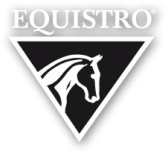
Folic acid (Vitamin B9)
Description
Folic acid is a water-soluble vitamin, which is known as vitamin B9, B11 - rarely also as vitamin M. Normally, folic acid - like all B-complex vitamins - is synthesized by the gut microbiota of the horse and therefore is available in sufficient quantities most of the time in healthy horses.
Function
Folic acid, in the form of the coenzyme tetrahydrofolate (THF), plays an indispensable role in DNA replication, among other things. The vitamin therefore plays a central role in cell division - especially of fast-growing cell types such as blood cells - and growth processes. It is also essential for the healthy development of the foetus during pregnancy.
Source
As the storage capacity for folic acid is limited, the precursors for the formation of this vitamin must be continuously ingested with the daily ration. Leafy vegetables like beet red, whet bran, sunflower seeds, and linseeds are rich in precursors off folic acid.
Requirements
The daily folic acid requirement for horses is not sufficiently specified. However, an adequate supply can be assumed if the ration is appropriate and contains enough green forage. However, in specific cases like high physical efforts, pregnancy, or lactation, a deficiency can occur in horses and adequate supplementation could become necessary.
Deficiency
In principle, folic acid deficiency only occurs in performance horses kept in stables that do not receive green fodder. A deficiency primarily manifests itself in anemia and poor performance. In addition, unspecific symptoms such as poor horn quality, dull coat, hair loss and lethargy can also be an indication of folic acid deficiency in horses.
During embryonic development, an undersupply of folic acid in the mother mare can lead to defects in the foal's central nervous system.
Excess
Overall, excessive doses of B vitamins with the feed are generally tolerated by horses and do not normally lead to any health risks.
Important to know
In cases of antimicrobial treatments with molecules that impact the folic acid metabolism of bacteria (sulfonamide antibiotics), a deficiency in folic acid can also occur in the horse's metabolism.
That's why it can be useful to support horses undergoing antibiotic treatment with folic acid enriched complementary feed.


